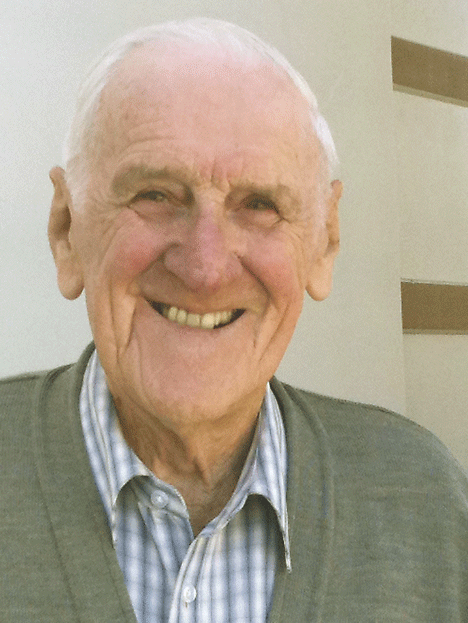 Feature
Feature
Fr James Lyons
August 2013
The Second Vatican Council was ‘Remarkably exciting and very unnerving,’ for Fr Gerry Scott who was a seminary professor during the council’s term.
Ordained in 1954 and appointed to the staff of New Zealand’s diocesan seminary, Holy Cross College Mosgiel, in 1961, he taught church history and dogmatic theology there till 1966, years that bracketted the Council’s sessions from 1962 to ’65.
I caught up with my former professor quite unexpectedly during a recent holiday visit to the Queensland city of Townsville where, in retirement, he has been assisting in the cathedral parish for the last four years. In this 50th year since the start of Vatican II, he keenly responded to my request to tell about the council’s impact on seminary staff.
‘We knew that this council would signal enormous change for the church, but of course we had no idea of specifics.’ Through his own post-graduate studies, Fr Gerry was aware of movements for change, particularly in regard to liturgy and scripture. He saw the council as releasing energy that had been building up for several years.
‘It was an exciting time, remarkably so. But it was also very unnerving.
‘We expected this would impact on preparation for priesthood, but we were certainly not ready for the sweeping changes the council ushered in.’
He remembers having to ‘make do’ with the textbooks which were becoming more and more outdated as each session of the council proposed further changes to established practice.
‘Seminaries had been working from a model that had held up for several centuries. I was welcoming the shift, but it was happening very quickly. The older priests on staff, while not opposing the new direction, did struggle to cope.
‘We ended up relying on the most recently published books and articles. It was hard to find anything definitive, but we did our best. The old certainties were disappearing and everyone knew it would take time for a new structure to emerge. Information technology as we now know it was still in the future and there were long delays between bulletins about what was going on.
‘While it was obvious there would be big changes in the curriculum – for instance, in the way the sacraments were to be taught and celebrated – it would take time, maybe years, to evolve. We couldn’t teach what we didn’t know.’
Fr Gerry recalled himself and another newly appointed teacher, Fr Rom Barry (scripture), spending their morning tea breaks listening to BBC radio reports on the closing months of the council in 1965. ‘We were desperate to hear everything we could. We felt we were at the birth of a new church.’
In the early ’70s many priests left the priesthood. Some were disillusioned by the slowness of change; some, appointed as curates to older priests who could not manage or accept the changes of Vatican II, were not supported or encouraged and struggled to find peace in their vocation. I asked Fr Gerry if he had envisaged this consequence.
‘I was deeply saddened but not shocked,’ he replied. ‘I knew there would be difficulties. It was impossible to adequately prepare those studying for priesthood in the 1960s for ministry in a church that was changing before their eyes.’
By the end of the council, he said, Holy Cross College was encouraging a more independent student body. ‘We had virtually done away with the prefect system and there was an elected student council. The change emphasised self-discipline rather than reliance on detailed and often petty rules. But it wasn’t easy to shift from a semi-enclosed monastic approach to a more open style of formation.
‘At the same time, the momentum created by the energy of Vatican II was something I strongly believe was Holy Spirit-driven and the church today, which identifies herself through a wonderful variety of ministries with lay and ordained working more as partners, is surely evidence of this.’
Fr Gerry Scott is a member of the Congregation of the Mission, founded by St Vincent de Paul to assist with the spiritual and theological formation of priests. Commonly known as Vincentians, the Order staffed Holy Cross College Mosgiel, for students for the diocesan priesthood. The seminary is now located in Auckland and is staffed by diocesan clergy.